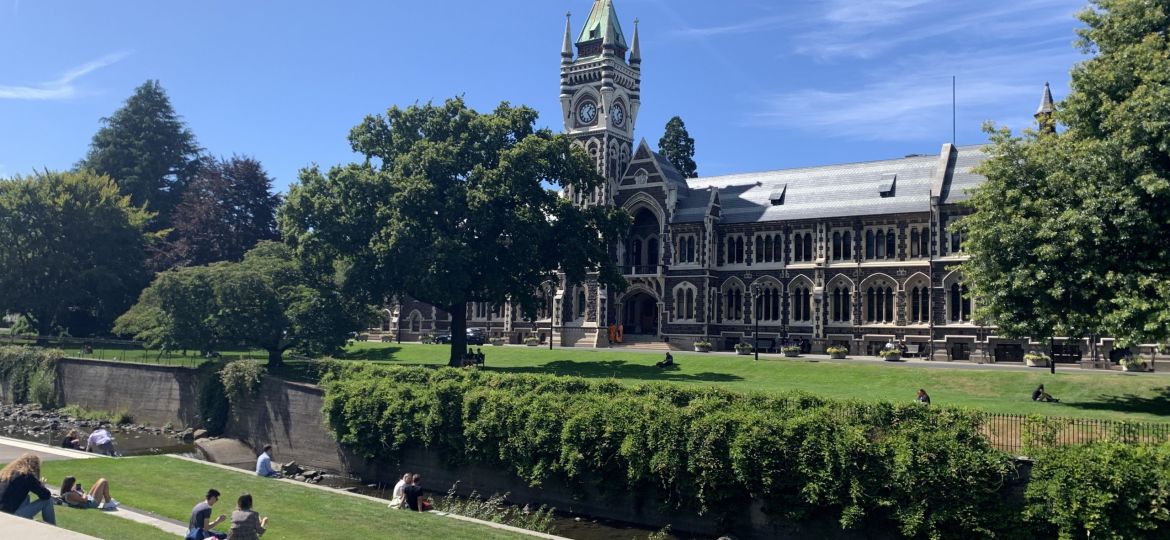
In this series, the Messenger will share the stories of Oles who were abroad as the global coronavirus pandemic began. Morgan Marxer ’21 describes what it’s like to be in New Zealand right now.
When did you leave for your study abroad, and which program are you on? When do you intend to return back to the U.S.?
I left for my study abroad trip on Feb. 11 for Dunedin, New Zealand. I am currently a full-time student at the University of Otago. I intend to return back to the states on June 18 after the semester exam period.
When the COVID-19 outbreak started, was it something people were concerned about right away? Was there a specific moment where it became real for you?
I was not necessarily concerned about New Zealand becoming greatly affected by the spread of the virus initially, as our case rates at the time were some of the lowest in the world. However, the Prime Minister, Jacinda Ardern, made the proactive decision to move to alert level 4 after cases spiked, being one of the only countries in the world on full lockdown for five weeks. This was the moment it became real for me. I stayed up to date with the spreading virus and testing strategies in New Zealand, yet I did not expect to move from alert level 1 to 4 so quickly.
However, I am appreciative of the aggressive approach Prime Minister Ardern and Health General Dr. Ashley Bloomfield used to minimize the virus in New Zealand. Not only did the rate of New Zealanders’ cases decrease each week, New Zealand has an incredibly high amount of COVID-19 randomized testing to ensure progress amidst the lockdown.
As the pandemic has progressed, how has the culture, community and country around you responded? How did your host school or program respond?
The Dunedin community was incredibly reactive to the alert level 4 requirements, and I feel as though the success of minimizing the virus was in large part due to the efforts of New Zealanders. My university has reacted quite well, and I am in touch with the residential workers and international office frequently to discuss my current state of health and wellbeing.
What made you decide to self-quarantine in New Zealand? Have you felt supported by the International and Off-Campus Studies (IOS) office in your decision?
St. Olaf strongly recommended that I return to the states and finish the remainder of coursework at home. However, I chose to stay abroad given my faith in the health care system and government of New Zealand. I felt that exposing myself to the virus through 35+ hours of air travel would increase the likelihood of carrying the virus and potentially spreading it to a family member of mine. The chaos around rescheduling flights, canceling flights, withdrawing from Uniflats, etc. was a process that seemed avoidable if I took the proper precautionary steps.
I received some criticism and doubt from the IOS office in this decision to stay, as they felt I was comparing the circumstances of two separate countries rather than what New Zealand would look like down the road in terms of the growing case rate. It was unclear whether or not I had the choice to stay abroad, so I felt a strong sense of uncertainty in my approach to act efficiently and appropriately while under stress. I did receive some support through IOS and the registrar in terms of how credit will transfer from my course work. However, I still felt that the University of Otago provided the best platform to have an open dialogue with weekly flat (residential) check-ups, mental and physical wellbeing surveys from student health, a Uniflat support Facebook page and daily updates from the administration on the status of COVID-19 and what uni would look like down the road.
How are you completing your classes? What is St. Olaf’s role in your academic transition?
I am completing my courses and labs completely online for the rest of this semester through Zoom and recorded lectures/demonstrations. Otago did an incredible job communicating with international students staying in Uniflats and offered free student health and confidential resources to talk to throughout this difficult transition half-way across the world from my home. St. Olaf has had little to no role in my academic transition.
Have you observed significant differences between the U.S. and New Zealand’s responses? Has being connected to two different countries impacted your understanding of the global pandemic?
The approach the Prime Minister and her cabinet have taken is arguably the most efficient, effective and powerful demonstration of leadership in the entire world at the moment. Not only have they responded quickly, they have kept in touch with the community while showing empathy for the hardships each New Zealander is facing during this journey. They have established a sense of trust in their people. Observing the way each country has responded to the global pandemic has vastly impacted my perspective of authentic and valiant leadership. I am certainly pleased with my decision to stay in New Zealand during this time.
This interview via email has been lightly edited for length and clarity

